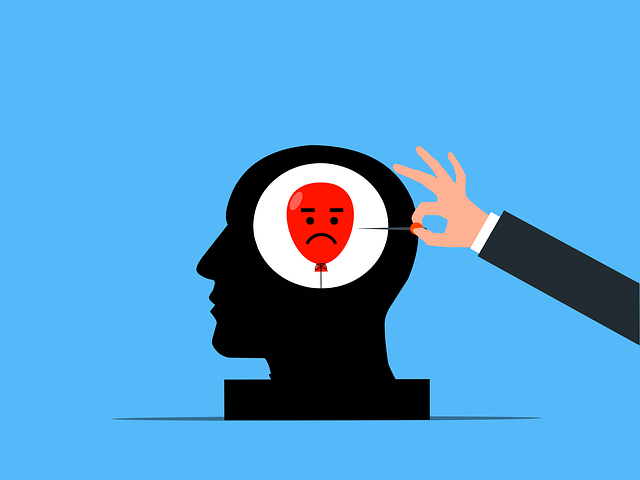In today’s fast-paced world, it is becoming increasingly necessary to have an organized mind. Being able to manage your thoughts and prioritize tasks can make a significant difference in achieving success both professionally and personally. However, many individuals struggle with maintaining an organized mindset due to various reasons such as stress, anxiety or lack of discipline.
I often receive questions from my clients on how they can train their minds to be more structured and efficient. Therefore, this article aims to provide practical strategies for developing an organized mindset that will help you navigate through life with greater clarity and focus.
Whether you are looking to enhance your productivity at work or simply want to improve your overall well-being, the tips shared here will set you on the path towards mental organization and balance.
Understanding The Benefits Of An Organized Mindset
 An organized mindset is essential for maintaining a stress-free life. When your mind is cluttered and disorganized, it can lead to increased anxiety and decreased productivity. However, when you have an organized mindset, you experience mental clarity that allows you to focus on the task at hand.
An organized mindset is essential for maintaining a stress-free life. When your mind is cluttered and disorganized, it can lead to increased anxiety and decreased productivity. However, when you have an organized mindset, you experience mental clarity that allows you to focus on the task at hand.
The benefits of organization are numerous. One of them is stress reduction. When everything has its place and there is a system in place for completing tasks efficiently, it reduces the likelihood of feeling overwhelmed by responsibilities or deadlines.
An organized mindset also helps to improve time management skills since you’re able to prioritize tasks effectively. Another benefit of having an organized mindset is a boost in productivity. When you know exactly what needs to be done and how to do it, you’re more likely to complete tasks quickly and accurately.
This results in greater efficiency overall and frees up time for other activities or projects. Overall, cultivating an organized mindset leads to better mental health and wellbeing as well as improved performance in all areas of life.
By incorporating simple organizational techniques into daily routines, individuals can achieve greater success both personally and professionally without sacrificing their peace of mind or quality of life.
Identifying Your Personal Roadblocks To Organization
Understanding the Benefits of an Organized Mindset has laid a strong foundation for your journey towards achieving mental organization. Now, it is time to identify your personal roadblocks to organization and address them effectively.
One common obstacle that hinders individuals from attaining mental clarity is procrastination. This habit often stems from fear, anxiety, or lack of motivation. The key to overcoming procrastination is by taking small steps towards completing tasks, breaking them down into manageable pieces.
Setting deadlines and holding oneself accountable can also help create momentum in tackling larger projects.
Another factor that affects mental organization is distractions. In today’s digital age, there are endless sources of interruptions such as social media notifications, emails, and phone calls. Managing distractions requires self-discipline and creating boundaries with technology use.
Designating specific times for checking emails or social media updates can prevent constant disruptions during work hours and allow for more focused attention on important tasks.
Lastly, cultivating an organized mindset involves adopting healthy habits that promote mental clarity and productivity. These include regular exercise, adequate sleep hygiene, managing stress levels through mindfulness practices like meditation or yoga, and maintaining a balanced diet.
By identifying personal roadblocks to organizational skills and implementing strategies to overcome them effectively while incorporating healthy habits into one’s daily routine will lead you towards an organized mindset which ultimately results in greater effectiveness at work or school as well as improved quality of life overall without feeling overwhelmed or stressed out all the time!
Setting Clear Goals And Priorities
One of the key factors in organizing your mind is to set clear goals and priorities. Without a solid understanding of what you want to achieve, it can be difficult to create a plan for how to get there. Setting goals helps you focus on what’s important so that you don’t waste time or energy on tasks that aren’t aligned with your objectives.
Breaking down tasks into smaller, manageable pieces is another essential element of being organized. When faced with a large project or task, it’s easy to feel overwhelmed and unsure where to start. However, by breaking down the work into individual steps, you can make progress more easily and track your success along the way.
This strategy also allows you to identify areas where you may need additional support or resources. Delegating responsibilities is an effective method for keeping yourself organized as well. Many people struggle with taking on too much work themselves and feeling like they have to do everything alone. By delegating certain tasks or projects to others who are better equipped to handle them, you free up mental space and reduce stress levels significantly.
It also enables team members to develop their skills and take ownership over their work. Setting clear goals and priorities, breaking down tasks into manageable pieces, and delegating responsibilities are all powerful tools for training your mind to become more organized. I encourage individuals seeking greater productivity and efficiency in their lives to incorporate these strategies into their daily routine consistently.
With practice and patience, anyone can train their mind towards becoming more focused, motivated, and disciplined in achieving their goals without falling victim to chaos or distraction while staying aware of personal limitations when necessary.
Developing Effective Time Management Skills
Imagine a life where you always know what to do next, and how much time to allocate for each task. A life where everything is organized, from your work schedule to your personal life. This may seem like an impossible feat, but with the right mindset and skills, it can be achieved.
Effective time management skills are crucial when it comes to being organized. Creating schedules for yourself can help you stay on track and ensure that all tasks are completed in a timely manner. Start by identifying your priorities and allocating appropriate amounts of time for each task. Use calendar apps or planners as tools to visualize your day-to-day responsibilities.
However, even with schedules in place, overcoming procrastination can still be a challenge. The key is to understand why you’re putting off certain tasks and addressing those underlying issues. Are you feeling overwhelmed? Do you lack motivation? Once you identify these obstacles, create strategies that will help motivate you to get things done. For example, set short-term goals or reward yourself after completing a difficult task.
In addition to creating schedules and overcoming procrastination, another important aspect of developing effective time management skills is learning when it’s okay to say no. Prioritizing self-care is essential when it comes to avoiding burnout and ensuring that productivity levels remain high. Saying yes too often can lead to spreading oneself too thin; therefore, knowing one’s limits is vital.
Developing effective time management skills takes practice and patience but adopting an organizational mindset can alleviate stress and provide clarity in daily tasks. With the right tools such as scheduling techniques coupled with understanding the reasons behind procrastination habits while prioritizing self-care will pave the way towards achieving optimal organization within both professional and personal realms without sacrificing mental health or happiness along the way.
Reducing Clutter And Simplifying Your Life
In developing effective time management skills, one of the most important factors is having an organized mind. A cluttered and disorganized mindset can lead to procrastination, forgetfulness, and a lack of focus. Therefore, it is essential to train your mind to be more organized in order to improve productivity and reduce stress.
To begin with, decluttering strategies can be very helpful in organizing your thoughts. This involves identifying unnecessary or distracting thoughts and clearing them from your mind. One way to do this is through mindfulness practices such as meditation or deep breathing exercises which help you stay focused on the present moment rather than getting lost in distractions.
Another key aspect of training your mind towards organization is adopting a minimalist lifestyle. Minimalism means living with less stuff so that you have fewer things to manage and maintain. By simplifying your possessions and environment, you create a sense of calmness and clarity that helps you think more clearly.
Lastly, creating systems for organization can also aid in training your mind towards structure. This could involve creating daily routines or checklists for tasks that need to be completed regularly. Having these systems in place allows you to automate some aspects of planning which frees up mental space for other important activities.
In conclusion, becoming more organized requires effort but it will ultimately pay off by increasing productivity and reducing stress levels. Using decluttering strategies, adopting a minimalist lifestyle, and implementing organizational systems are all effective ways to train your mind towards greater organization.
With practice and consistency over time, these habits become second nature leading to long-term benefits both personally and professionally.
Practicing Mindfulness And Meditation
According to a study published in the Journal of Health Psychology, individuals who practice mindfulness meditation have lower levels of perceived stress and increased well-being compared to those who do not. This highlights the importance of incorporating mindfulness into our daily routines as it can help us manage our thoughts better and improve mental organization.
One of the most effective ways to train your mind to be organized is through practicing mindful breathing. Mindful breathing involves paying attention to your breath without judgment or distraction. By focusing on each inhale and exhale, you become more aware of your thoughts and emotions, allowing you to develop a sense of control over them.
Another technique that can aid in improving mental organization is visualization. Visualization involves creating images in your mind that represent what you want to achieve or how you want things to be arranged. Visualizing these scenarios helps your brain create neural pathways associated with these goals, making it easier for you to organize your thoughts towards achieving them.
To begin training your mind for organization, start by setting aside time every day for mindfulness practices such as mindful breathing or visualization techniques. Start small with just five minutes per session and gradually increase this over time.
Consistency is key when it comes to developing an organizational mindset, so make sure to stick with it even during busy periods. By incorporating mindfulness practices into your routine and being consistent with them, you will notice improvements in mental clarity and focus which will ultimately lead to better overall organization within all aspects of life.
Keep at it, stay patient with yourself throughout the process, and watch as positive results unfold before you!
Creating Sustainable Habits For Long-Term Success
The practice of mindfulness and meditation is an excellent starting point for training your mind to be organized. By focusing on the present moment, you can declutter your thoughts and gain clarity about what needs to be prioritized in your life. Regularly practicing these techniques will help build mental resilience, allowing you to handle stressors that may arise.
However, mindfulness alone cannot guarantee organizational success. Creating daily routines that incorporate time management strategies is equally important. Implementing a schedule for tasks such as planning meals or exercise can ensure that they are completed consistently. Additionally, incorporating accountability partners into your routine can provide motivation and support while also holding you responsible for completing tasks.
When creating sustainable habits for long-term success, it’s essential to start small and gradually work towards larger goals. Breaking down big projects into smaller steps allows them to become more manageable and less overwhelming. Consistently meeting these smaller objectives provides positive reinforcement and helps develop discipline.
In summary, successfully training your mind to be organized requires a combination of practices including:
– mindfulness and meditation
– establishing daily routines with time management strategies
– implementing accountability partners
– setting achievable goals through breaking down bigger projects into smaller ones
– consistent effort over time
With this approach, anyone can achieve their desired level of organization in both personal and professional settings.
Frequently Asked Questions
Can I Train My Mind To Be Organized If I Have Adhd Or Other Cognitive Disorders?
Individuals with ADHD and other cognitive disorders may struggle with organization, which can negatively impact productivity. Coping strategies for individuals with ADHD may include breaking tasks down into smaller steps, using visual aids such as color-coded calendars or lists, and setting reminders.
It is important to find a balance between accommodating cognitive limitations while still pushing oneself to be productive. For individuals with other cognitive disorders, it may be helpful to work with a therapist or coach who specializes in that disorder to develop personalized coping strategies.
My goal is to help individuals identify their strengths and weaknesses when it comes to organization and provide them with tools and techniques tailored specifically to their needs.
How Can I Maintain An Organized Mindset When Dealing With Unexpected Events Or Changes In My Routine?
Maintaining an organized mindset can be challenging, especially when unexpected events or changes in routine occur. However, with the help of effective time management strategies and a flexible mindset, it is possible to stay on track even amidst uncertainty.
Mindset flexibility involves being open to new approaches and adapting to changing circumstances while remaining focused on one’s goals.
Time management strategies, such as prioritizing tasks and breaking them down into smaller steps, can also help individuals maintain their organization and productivity despite disruptions.
I recommend regularly practicing these techniques to build resilience and enhance one’s ability to manage unexpected challenges.
Are There Any Specific Exercises Or Activities That Can Help Me Improve My Organizational Skills?
I have found that incorporating mindfulness techniques and time management strategies can greatly improve one’s organizational skills.
Mindfulness exercises such as meditation or breathing techniques can help individuals focus on the present moment and reduce stress levels, allowing them to approach tasks with a clear mind.
Time management strategies such as creating a schedule or prioritizing tasks can also ensure that individuals are using their time efficiently and effectively.
Consistent practice of these exercises and strategies can lead to a more organized mindset and improved productivity in daily life.
How Can I Overcome Procrastination And Get Started On Organizing My Life?
Overcoming procrastination and getting started on organizing one’s life can be a challenging task.
Perfectionism often holds individuals back from taking action, as the fear of not completing a task flawlessly can lead to avoidance or delay. To overcome this mindset, it is important to set achievable goals that are specific, measurable, and time-bound.
Breaking down larger tasks into smaller components can also make them seem more manageable and less daunting.
I recommend creating a schedule or routine that includes dedicated time for organization and planning. Additionally, eliminating distractions such as social media or television during this designated time can help maintain focus and increase productivity.
By implementing these strategies and developing a growth-oriented mentality towards organization, individuals can begin to overcome procrastination and take control of their lives.
Is It Possible To Be Too Organized, And Are There Any Downsides To Having An Extremely Organized Mindset?
I often encounter clients who strive to be highly organized individuals.
While there are certainly numerous benefits to being organized such as increased productivity and reduced stress levels, it is possible to become too focused on organizing every aspect of one’s life.
This can lead to a rigid and inflexible approach that may hinder creativity and spontaneity, ultimately causing burnout or feelings of inadequacy when things do not go according to plan.
It is important for individuals striving for organization to find a balance between structure and flexibility in order to reap the most benefits while avoiding potential drawbacks.
Conclusion
Organizing one’s mind is not an easy feat, especially for those with cognitive disorders. However, it is possible to train the mind to become more organized through various exercises and activities.
One effective technique is creating a routine and sticking to it consistently. This helps establish structure in daily life and reduces the likelihood of forgetting important tasks.
Another helpful practice is breaking down larger projects into smaller, manageable tasks. This prevents overwhelm and allows for greater focus on each individual task. Additionally, utilizing organizational tools such as calendars or lists can aid in maintaining organization.
Procrastination can be a significant obstacle when attempting to organize one’s life. Overcoming procrastination requires self-discipline and setting achievable goals. It may also be beneficial to eliminate distractions during designated work times.
While being highly organized can have many benefits, including increased productivity and decreased stress levels, it is essential to remember that there can be downsides as well. Being too rigid in routines can lead to inflexibility and lack of spontaneity. Therefore, finding a balance between structure and flexibility is crucial.
In conclusion, training the mind to become more organized takes time and effort but is certainly achievable with dedication and consistency in practicing good habits. Remembering the importance of balance will ensure that having an organized mindset does not hinder personal growth and development.









